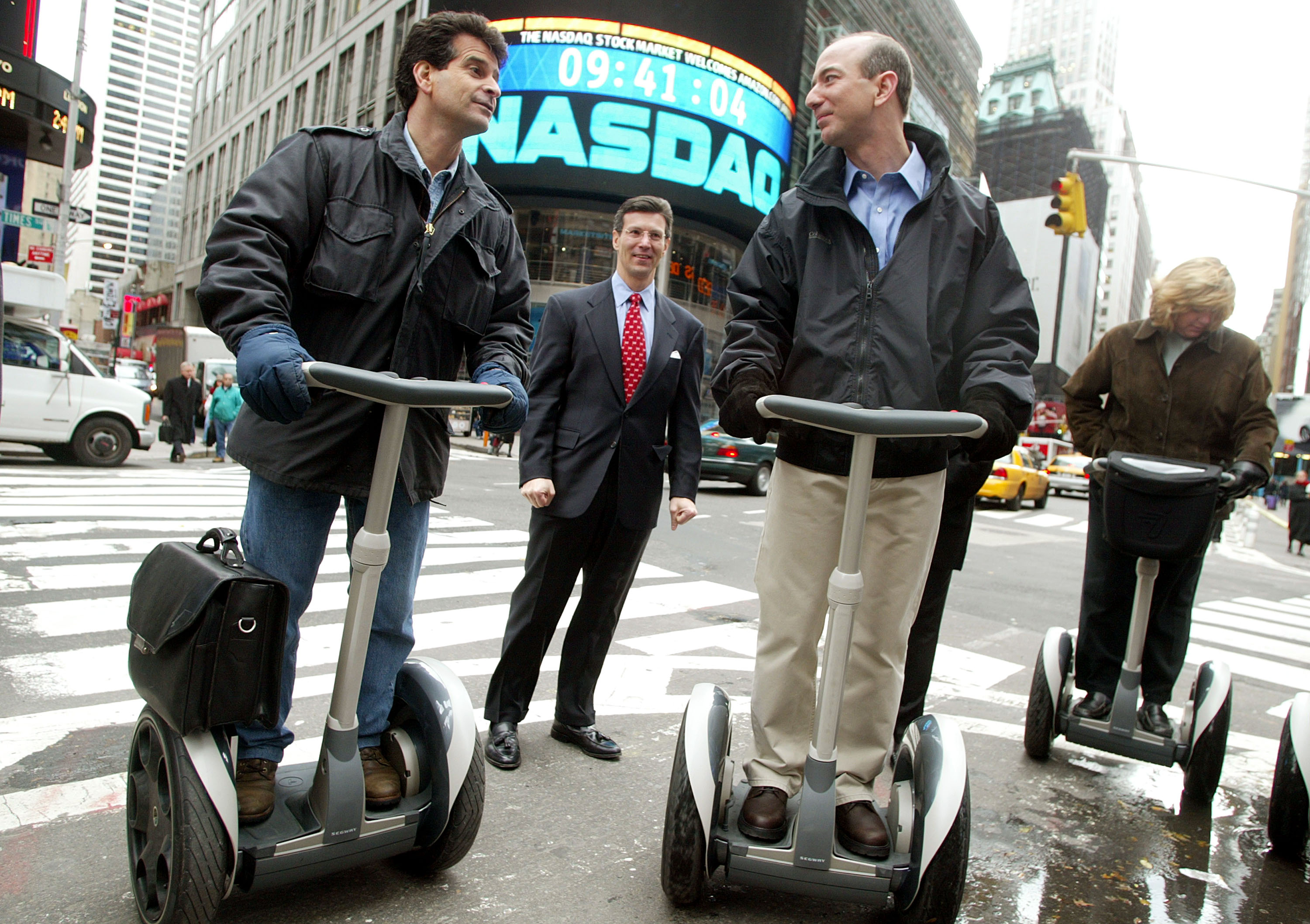Who invented Ginger, which was launched with the claim that it would change the concept of transportation?
The Segway, codenamed Ginger, is a two-wheeled self-balancing transport. It was introduced in December 2001 by its inventor, Dean Kamen.

Segway is known for its two-wheeled mobility vehicles. Segway, which has made a name for itself with the two-wheeled scooter model called Ginger, has produced different models over the years, such as electric skates called Drift W1.
Former US President George Bush had fallen from the Segway, which was introduced in 2001 as the safest means of transportation that no one could fall over.
Dean Kamen introduced the personal carrier device, called the Segway, to the world in December 2001.
Dean Lawrence Kamen (born April 5, 1951) is an American engineer, inventor, and businessman. He is known for his invention of the Segway and iBOT, as well as founding the non-profit organization FIRST with Woodie Flowers. Kamen holds over 1,000 patents.
Saying that the invention called Segway is the first self-balancing vehicle, Kamen stated that the vehicle automatically adapts to its user thanks to its computer hardware. Describing the Segway as a simple car with the characteristics of a horse-drawn carriage, Kamen thought that this skateboard-like vehicle, which goes at 27 kilometers per hour, would significantly reduce traffic in big cities.
Kamen's invention is a highly maneuverable vehicle between a car and a scooter. The Segway, which has a powerful computer hardware, automatically adapts to the movements of the person it carries and continues on its way without falling over. The Segway was an environmentally friendly alternative to gasoline-powered vehicles. While standing on it like a bicycle, the Segway, which could move by slightly destabilizing itself, was also working with electric dynamos. So, both your balance movements and a little energy from the battery were enough to get the Segway moving.
The Segway, which did not have any braking mechanism on it, could be stopped by slowing its progress thanks to the direction made by the user in the opposite direction.
Kamen's history is also full of inventions. Kamen, who found the first portable insulin pump in the 1970s and made the lives of diabetics easier, later made an invention that would please these patients. This invention was a bag-sized and portable dialysis machine. Continuing his work in the field of health, Kamen has recently succeeded in producing electric chairs with the ability to climb stairs.
Kamen, who employs 165 engineers and staff at the DEKA research company he founded in New Hampshire, has always refused to speak publicly about his plans. Instead, Kamen preferred media interviews and speaking at conferences about high technology and science.
1999 - Famous inventor Dean Kamen founded the "Company" later known as Segway.
2001 – December – The Segway Human Transporter, now known as the Segway Personal Transporter, is introduced on the Good Morning America television show.
2004 - November - Segway's four-wheeled, prototype ATV concept was named one of the "Best Inventions of 2004" in TIME magazine.
2005 – March – Segway announces the Segway XT, the first all-terrain personal carrier equipped with long-range lithium batteries, all-terrain tires, durable fenders and specialized software developed for different terrains.
2008 – August – More than 100 zero-emission Segway Personal Transporter was made available to delegates as an environmentally friendly solution at the 2008 Beijing Olympics.
2009 - December - Segway is acquired by prominent British entrepreneur James 'Jimi' Heselden.
SEPTEMBER 2010
Jimi Haselsen, who is on the list of "the 400 richest people in England" and has been the owner of the American Segway company for about 10 months, died in the Segway accident. Haselsen drowned after falling into the river in his all-terrain Segway.
British billionaire Jimi Haselsen, who bought the American Segway company from Dean Kamen, the inventor of the vehicle of the same name, last December, died in a Segway accident. The 62-year-old billionaire, whose body was pulled from the Wharfe River near his home in West Yorkshire with his Segway, is believed to have lost control of his all-terrain Segway, fell into the river and drowned.
Police announced that there is no doubt about the death of Haselsen, who is on the list of "400 richest people in England" and that there will be no investigation. Haselsen, who started his life as a miner, developed an explosion-proof material much more effective than sandbags, and thanks to this invention, he had a fortune of 263 billion dollars.
2014 – May – Segway launches the SE-3, its first three-wheeled personal transporter for the public safety market.
2015 – April – Segway and Ninebot companies join forces to make electric driving, mobile internet and human-computer communication more common in the automotive, robotics and personal transportation industries.
2017 - Segway launches smart and lightweight E-Scooters with improved range and speed.
Segway continues to expand its consumer product range by launching two smart and lightweight Ninebot by Segway KickScooters, which it will showcase at IFA 2017 in Berlin, Germany, from September 1-6.
2020 - The company introduced its wheelchair, which will be an alternative vehicle in smart cities of the future, especially in Toyota Woven City, at the CES 2020 fair. The electric vehicle called S-Pod is quite different from the previous models of the company and attracts attention with its futuristic design.
The control of the S-Pod vehicle is provided by an arm, unlike Segway's previous products. In previous products, the user, who performed the guidance according to body weight, performs the steering through the sensitive control located on the right side of the seat, since the user travels by sitting in this vehicle. This add-on makes the two-wheeled vehicle easier to control. Despite its bulky appearance, the two-wheeled seat, designed to be used in confined areas such as airports, parks and campuses, can maneuver in narrow spaces very easily.
